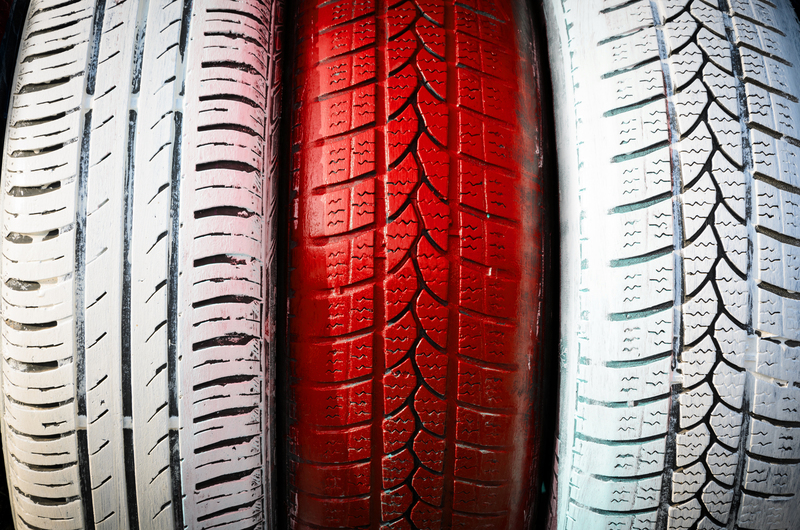Save More When Tackling Bulky Waste at Home
Bulky waste at home can quickly become an eyesore and a financial burden if not handled wisely. Whether it's a worn-out mattress, broken furniture, outdated appliances, or piles of garden debris, managing large or awkward household items can be both challenging and costly. However, with the right strategies, you can save money while efficiently disposing of bulky waste and even contribute to a more sustainable environment.
Understanding Bulky Waste and Why Efficient Management Matters
Bulky waste typically refers to large household items that cannot be disposed of through regular weekly garbage collection. Examples include:
- Couches, sofas, and armchairs
- Mattresses and bed frames
- Large appliances (fridges, washing machines, dishwashers)
- Carpet rolls and flooring materials
- Garden waste (branches, tree stumps)
- Exercise equipment and bikes
Proper bulky waste removal is crucial for several reasons:
- It keeps your living spaces clean and safe.
- Prevents illegal dumping and environmental harm.
- Ensures that recyclables or reusable items are salvaged.
- Can help you save more money by avoiding fines and making the most out of reusable items.

Tips to Reduce Costs When Disposing of Bulky Waste at Home
1. Plan Ahead and Sort Your Waste
Before you begin your bulky waste disposal project, take some time to categorize and sort the items. Group your items into:
- Items that can be donated or sold
- Materials that can be recycled
- Actual non-recyclable waste
This step is key to saving money on waste removal, as many things people throw away could still have value or a second life. Plus, local council or waste contractors often factor in sorting when giving you a quote.
2. Reuse, Repurpose, or Upcycle Where Possible
Bulky doesn't mean useless! Consider creative ways to reuse or repurpose your old items. For example:
- Transform an old ladder into a bookshelf
- Refurbish wooden furniture with a new coat of paint or stain
- Turn pallets into garden furniture
- Use fabric from an old couch for DIY projects
Upcycling not only saves you disposal fees, but potentially provides you with "new" furniture or decor at no extra cost.
3. Sell or Give Away Items Online
If your bulky waste is still usable, consider listing it on platforms such as:
- Facebook Marketplace
- Craigslist
- eBay
- Freecycle
- Local community groups
People seeking bargains or upcycling materials may be happy to collect items from you. This can save you transport costs and potentially earn you some cash instead of paying for disposal.
4. Check Free Bulk Waste Collection Days from Local Council
Many councils offer scheduled free bulky waste pickups for residents annually or biannually. Make sure to:
- Sign up for alerts on your local council's website
- Prepare your items to their specific guidelines (e.g., disassembled, tied up, placed curbside on a specific day)
- Avoid placing out prohibited items, which might result in fines
Using your municipality's free service is one of the most reliable ways to save more when getting rid of bulky household items.
5. Use Registered Waste Removal Services Wisely
When you need a commercial waste removal service:
- Get multiple quotes from licensed providers
- Share clear photos and item lists to get an accurate price
- Ask about their recycling policies to ensure as much as possible is diverted from landfill
- Consider "man and van" services for smaller loads, which can be cheaper than skip hire
Always choose registered waste carriers to avoid fly-tipping and potential fines.
6. Hire a Skip Only If Needed
While skip hire offers convenience, it can be expensive. Skip costs often include delivery, collection, and disposal charges. To get the most value:
- Share a skip with neighbours to split the fee
- Choose the correct size - too large, and you pay for unused space; too small, and you may need a second skip
- Only fill it with permitted items to avoid additional charges
If you have only a few items, consider using a local "wait and load" service instead for significant savings.
7. Recycle Bulky Waste Responsibly
Many bulk waste materials are recyclable. Check with your local recycling center about their accepted items. Commonly recyclable bulky waste includes:
- Scrap metal (bed frames, garden tools)
- Electronics and electrical appliances
- Mattresses (some centers now recycle materials)
- Hard plastics and plastics furniture
- Wood and timber
If you deliver directly to a recycling center, be sure to sort your items as required for faster, often free, drop-offs.
8. Break Down Items for Easier Handling
Disassemble furniture and larger objects to:
- Reduce the size and amount of waste
- Make items easier to transport or store before collection
- Potentially avoid extra charges for "oversized" waste removal
Smaller, compacted waste is often simpler (and cheaper) for both council and private collectors to handle.
Hidden Costs to Avoid When Disposing of Bulky Household Waste
Sometimes, the cost of bulky waste removal is higher than expected due to:
- Last-minute or urgent pickups
- Inadequate sorting (leading to contamination and fees)
- Unlicensed collectors--potential fly-tipping fines if your waste is illegally dumped
- Disposal of prohibited items (paint, chemicals, tyres) mixed with regular bulky waste
To avoid surprise costs, always clarify collection rules and pricing before agreeing to any service. Request receipts or transfer notes to prove legal disposal.
Sustainable Practices for Bulky Waste Management at Home
Today, sustainability is as vital as cost-savings. You can both save money and help the planet with these steps:
Donate to Charities and Local Organizations
Many charities accept bulky furniture, working appliances, and household goods. Some even offer free collections if your items are reusable. This not only prevents landfill but may also make you eligible for tax credits or receipts in some areas.
Repair Instead of Replacing
Before dumping a broken appliance or scratched table, assess if a quick repair is possible. Repair cafes, community workshops, and video tutorials have made DIY fixes easier than ever. Not only do you save on disposal and replacement costs but also keep bulky items out of waste streams altogether.
Participate in Community Swap Events
Many neighborhoods and councils organize 'swap days' or garage sales where residents can trade or give away bulky items. This is a simple way to save on bulky waste disposal and maybe discover some treasures yourself!
Use Eco-Friendly Disposal Services
Select contractors and removal companies that prioritize recycling and proper sorting. Green waste management firms may divert 80-90% of bulky waste from landfill, reducing carbon footprint while helping you save more on landfill taxes or extra charges.

Frequently Asked Questions on Bulky Waste Removal
How do I know what counts as bulky household waste?
Bigger is bulkier! Any item too large or heavy for your regular trash bin or bag, especially those requiring two people to lift, is generally considered bulky waste. Check your local council's website for specific lists.
Can I leave bulky waste on the kerb for collection?
Only on scheduled collection days and in accordance with local guidelines. Leaving bulky waste at the kerbside at other times is illegal and may result in fines.
What should I do with hazardous bulky waste?
Paint, chemicals, electronics, and certain appliances require special handling. Take them directly to designated recycling centers or hazardous waste facilities. Never mix hazardous items with standard bulky waste, as this can incur extra costs and environmental risks.
Is burning or burying bulky waste a viable option to save money?
Never! Burning or burying household bulky waste is illegal in most areas and poses serious health and environmental risks. Always use approved waste disposal methods.
Are there fines for improper bulky waste disposal?
Yes, improper disposal or using unlicensed carriers can lead to hefty penalties--a hidden cost to watch for!
Conclusion: Save More and Stress Less When Managing Bulky Waste at Home
With some planning and creativity, dealing with bulky household waste doesn't have to drain your wallet or harm the environment. The surest ways to save more include:
- Donating, selling, or gifting usable items
- Taking advantage of council's free collection days
- Comparing quotes and using reputable waste removal services
- Sorting, recycling, and minimizing what goes to landfill
- Repurposing or repairing items where possible
By following these expert tips, you can efficiently manage bulky waste at home, save money, broaden your environmental impact, and make your living space safer and tidier. Start today, and transform bulky waste challenges into opportunities for savings and sustainability!